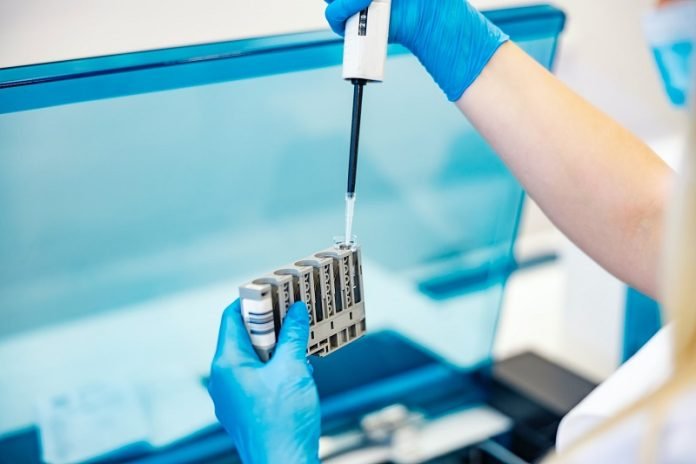
In two studies from Cedars-Sinai, scientists are closer to predicting two important heart conditions.
One is sudden cardiac arrest, which is often fatal, and the other is increased coronary artery calcium, a marker of coronary artery disease that can lead to a heart attack.
In the cardiac arrest study, the team identified a panel of novel blood biomarkers specifically associated with sudden cardiac arrest.
These biomarkers have the potential to enhance the clinical prediction of sudden cardiac arrest—a life-threatening condition making headlines after NFL player Damar Hamlin experienced cardiac arrest mid-game earlier this month.
Sudden cardiac arrest is the sudden loss of heartbeat and affects more than 350,000 in the United States annually.
Despite an organized emergency medical response system, fewer than 10% of individuals who have a cardiac arrest will survive.
In this study, the researchers analyzed a large number of blood biomarkers obtained from survivors of sudden cardiac arrest, comparing results from one cohort of people without coronary artery disease and one cohort with the disease.
They identified a total of 26 protein biomarkers associated with sudden cardiac arrest when cases were compared to controls, of which 20 differentiated sudden cardiac arrest from coronary artery disease
In the coronary artery calcium study, researchers found that an ultrasound image of the heart can be “read” by an artificial intelligence algorithm to accurately identify whether a patient has a large amount of buildup in their coronary arteries.
Traditionally, coronary artery calcium buildup is diagnosed using CT scans, which are not available at every center, expose patients to radiation, and are costly.
On the other hand, heart ultrasounds—also called echocardiograms—can be done in a clinic or doctor’s office, do not produce radiation, and tend to be much less expensive.
The team found that echocardiograms, when interpreted with our AI software, can predict coronary artery calcium and predict heart attack risk nearly as well as CT scans.
This proved true even in cases where the naked eye of an expert reader sees the ultrasound image of the heart as appearing fairly normal.
Using a dataset of 2,881 echocardiogram images, the team trained a video-based artificial intelligence tool to predict coronary artery calcium scores.
Scores range from zero—representing a “perfect” score with no indication of coronary artery calcium buildup—to more than 2,000, a poor prognosis for individuals, representing a high risk of heart attack and coronary artery disease.
If you care about heart health, please read studies that apple juice could benefit your heart health, and Yogurt may help lower the death risks in heart disease.
For more information about heart health, please see recent studies about statin drugs that can do double duty on heart disease and cancer, and results showing this hormone may reduce irregular heartbeat and inflammation.
The studies were conducted by Sumeet Chugh et al and published in Heart Rhythm and the Journal of the American Society of Echocardiography.
Copyright © 2023 Knowridge Science Report. All rights reserved.



